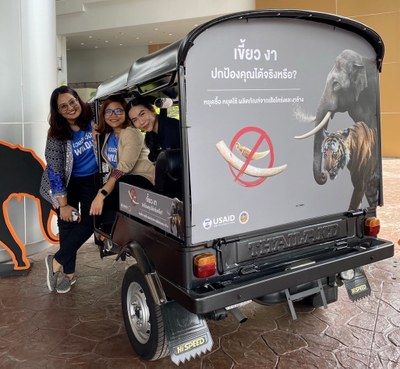Pioneering SBCC
RDW expanded existing campaigns in Thailand and China that successfully reduced demand for wildlife products and reduced the social acceptability of buying and using such products. In addition, it piloted campaigns for tourists intent on buying illegal wildlife in other countries. The project developed messages and principles for maximizing the potential for SBCC techniques to reduce demand for wild meat and wildlife products, thereby curbing a significant pathway for exposure to zoonotic pathogens and spillover.
In Thailand, the project continued USAID Wildlife Asia campaigns addressing two key drivers - spiritual beliefs in the power of ivory and tiger products to bring good luck and prevent harm (No Ivory No Tiger Amulets campaign) and perceived beauty of ivory (Beautiful Without Ivory campaign) as well as the Digital Deterrence campaign to reduce potential online purchase of ivory and tiger products.
Using the wealth of data collected during the implementation of USAID Wildlife Asia, USAID Reducing Demand for Wildlife showcased lessons and tools to further promote the adoption and institutionalization of SBCC as a pillar of counter wildlife trafficking in Thailand, Southeast Asia, and globally. RDW worked with government and private sector partners in the region, supporting the transition towards a new wildlife-free social norm.


